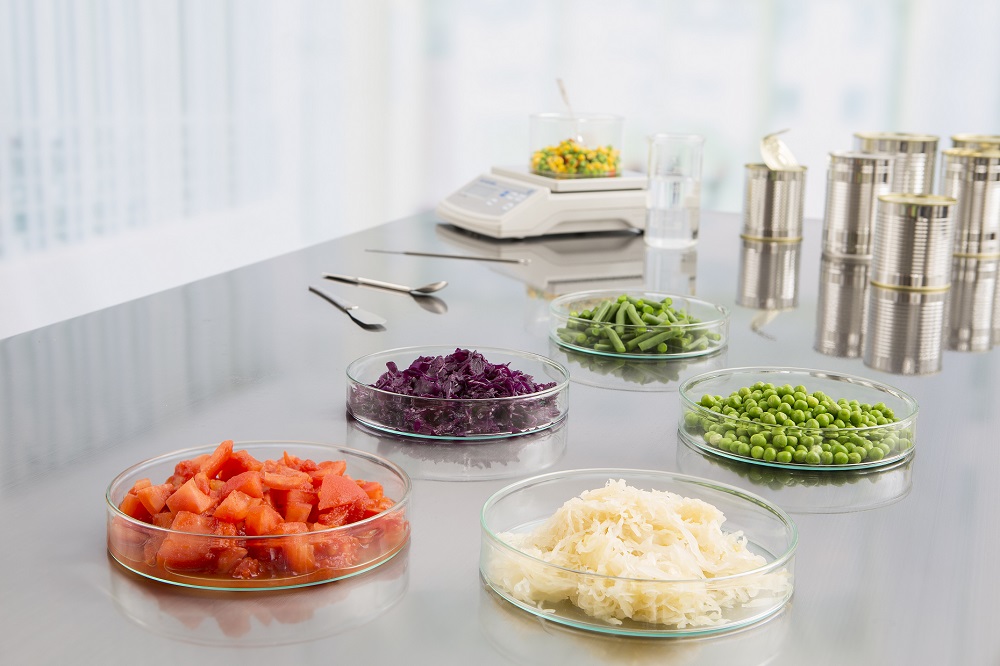On behalf of the ‘Initiative Lebensmitteldose’, the SGS Fresenius Institute Berlin has recently conducted scientific research investigating the nutritional value of canned food. The findings show that canned vegetables’ vitamin and mineral levels are as high as freshly cooked vegetables. In fact, for some canned vegetables the vitamin and mineral values of the nutrients measured are even higher than for some of their freshly prepared counterparts.
The aim of this research project was to make an objective comparison of vitamin and mineral levels of canned and fresh vegetables. While the canned vegetables, which were used for the tests, were heated according to the recommendations of the manufacturer, the Institute cooked the fresh food
according to regular household practice. Afterwards, both canned and freshly prepared vegetables were examined for their mineral nutrients such as potassium, magnesium and calcium, as well as for
the levels of vitamin B1, B6, C, A (beta-carotene) and folate. Additionally, the lycopene content of tomatoes was measured. The results confirm the findings of previous studies according to which the vitamin and mineral levels of canned foods are comparable or even higher than for freshly prepared food.
Canned sauerkraut and tomatoes are clear winners.
Two canned vegetables achieved optimum values: sauerkraut and tomatoes. 200g of canned sauerkraut contain one third more vitamin C than the freshly prepared alternative. The result confirms that canned sauerkraut reaches as much as 40% of the recommended daily intake of vitamin C. 200g canned tomatoes contain one third of the recommended daily intake of vitamin C,
while the freshly prepared equivalent only contains a quarter.
Canned tomatoes also achieved outstanding results for their beta-carotene (vitamin A) and lycopene levels. A 200g portion of canned tomatoes contains almost 66% of the recommended daily dose of beta-carotene, a powerful antioxidant, which is beneficial for the health of our eyes, skin, and the
mucous membranes. Canned tomatoes compared to fresh tomatoes also contain as much as four times more lycopene, which possesses antioxidant properties and is believed to have a preventive effect on cardiovascular diseases.
Protection against a loss of nutritional value – steel for packaging makes it possible.
The findings of the research highlight steel’s exceptional performance capabilities: once the food is canned, a loss of nutrients is practically impossible. As food cans are made of steel, the material delivers total barrier properties and unrivalled protection against light, air or impurities. Steel for
packaging is impact-resistant and unbreakable, while vitamins and mineral nutrients are always retained. Cans offer unrivalled protection for food – during transport, storage or on the shelf. The food can does not only protect valuable mineral nutrients, it also retains product freshness as
well as flavour and has an unrivalled shelf life of minimum three years without adding preservatives.
The combination of heating, steel’s total barrier properties and hermetic sealing is sufficient to naturally preserve the food. High product safety, a long shelf life and the fact that metal can be recycled forever, make cans the perfect packaging choice.



